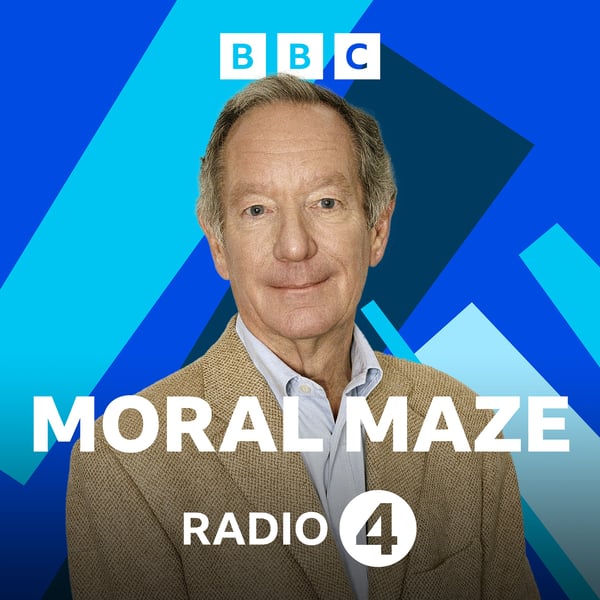Moral imagination and migration
Moral Maze
BBC
4.5 • 609 Ratings
🗓️ 27 October 2016
⏱️ 43 minutes
🧾️ Download transcript
Summary
The demolition of the Jungle camp in Calais this week has highlighted a moral paradox at the heart of the debate about migration. The media are full of heart-rending stories of the suffering, endurance and hope of individual migrants - each one of them a compelling cry for our help and understanding. Yet, despite our growing collective knowledge of the plight of migrants, our attitude to migration seems to be hardening. Why? In many other areas of our society the opposite is true. Take, for example, the case of mental health. As more people overcome stigma to talk about it, we know more about its impact, our empathy with suffers has increased and people are now being treated more humanely. It's a virtuous circle that doesn't seem to work for migrants. Is this a failure of our moral imagination? How can we, at the same time, feel moved by the plight of one refugee but indifferent to the plight of thousands of refugees? Should we be trying to turn what we can see to be right in individual cases into general moral principles to be applied across the board? Or is it sometimes legitimate and desirable to reduce morality to numbers? What it may be rational to do for one individual, it may be irrational to do for thousands. When the German Chancellor Angela Merkel reacted, like most of us, with horror to the terrible picture of the body of a drowned toddler being carried from a Greek beach, she agreed to take in hundreds of thousands of Syrian asylum seekers. Now many in Germany and across Europe are questioning whether that was the right and moral thing to do as countries struggle to accommodate the new arrivals. Was that a triumph of moral imagination or the worst kind of emotionally driven gesture politics? Moral imagination and migration. Witnesses are Matthew Parris David Goodhart, Dr Wanda Wyporska and Zrinka Bralo.
Transcript
Click on a timestamp to play from that location
| 0:00.0 | You're listening to a programme from BBC Radio 4. |
| 0:03.6 | Good evening. The destruction this week of the migrant camp in Calais that came to be called the jungle |
| 0:07.9 | is symbolic, not just of a general hardening of hearts towards those fleeing war or poverty, |
| 0:13.4 | but also of our increasing reluctance to extend sympathy for individual suffering into general moral principle. |
| 0:20.5 | Vignettes move us. The big picture merely seems to make |
| 0:23.7 | many of us fearful. We can still be touched by a story of desperation and hardship. A single picture of a |
| 0:29.7 | dead toddler drowned on a Greek beach apparently persuaded Chancellor Angela Merkel to commit Germany |
| 0:34.9 | to take hundreds of thousands of Syrian refugees. |
| 0:38.7 | A humanitarian impulse has created a backlash from those who feel so many strange and needy |
| 0:43.8 | newcomers are changing their communities and having a negative impact on their lives. |
| 0:48.9 | Here we're more choosy. We pick out children from the jungle camp and get indignant if they |
| 0:53.4 | don't seem to be young enough to qualify for our help. |
| 0:56.6 | Is this a rational acceptance of what is socially sensible and politically possible? |
| 1:00.8 | Our resources are already stretched. |
| 1:02.5 | We live in a more mobile and crowded world where violence, hardship and simple aspiration for a better life are pushing so many our way. |
| 1:10.4 | But can morality be reduced to numbers? |
| 1:14.3 | Can you ration kindness in an ethically acceptable way, |
| 1:17.9 | or are we just ending up with the worst kind of emotionally driven gesture politics? |
| 1:22.6 | Does our outpouring of concern over a single refugee child, |
| 1:26.8 | while we remain largely indifferent to the |
| 1:28.7 | torment of whole nations, just a lack of moral imagination. That's our moral maze tonight. The panel, |
| 1:34.2 | the former Conservative Cabinet Minister Michael Portillo, Matthew Taylor, Chief Executive of the RSA, |
... |
Please login to see the full transcript.
Disclaimer: The podcast and artwork embedded on this page are from BBC, and are the property of its owner and not affiliated with or endorsed by Tapesearch.
Generated transcripts are the property of BBC and are distributed freely under the Fair Use doctrine. Transcripts generated by Tapesearch are not guaranteed to be accurate.
Copyright © Tapesearch 2025.

